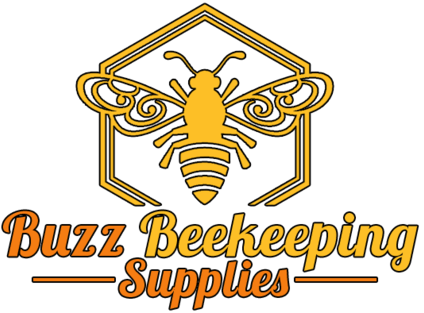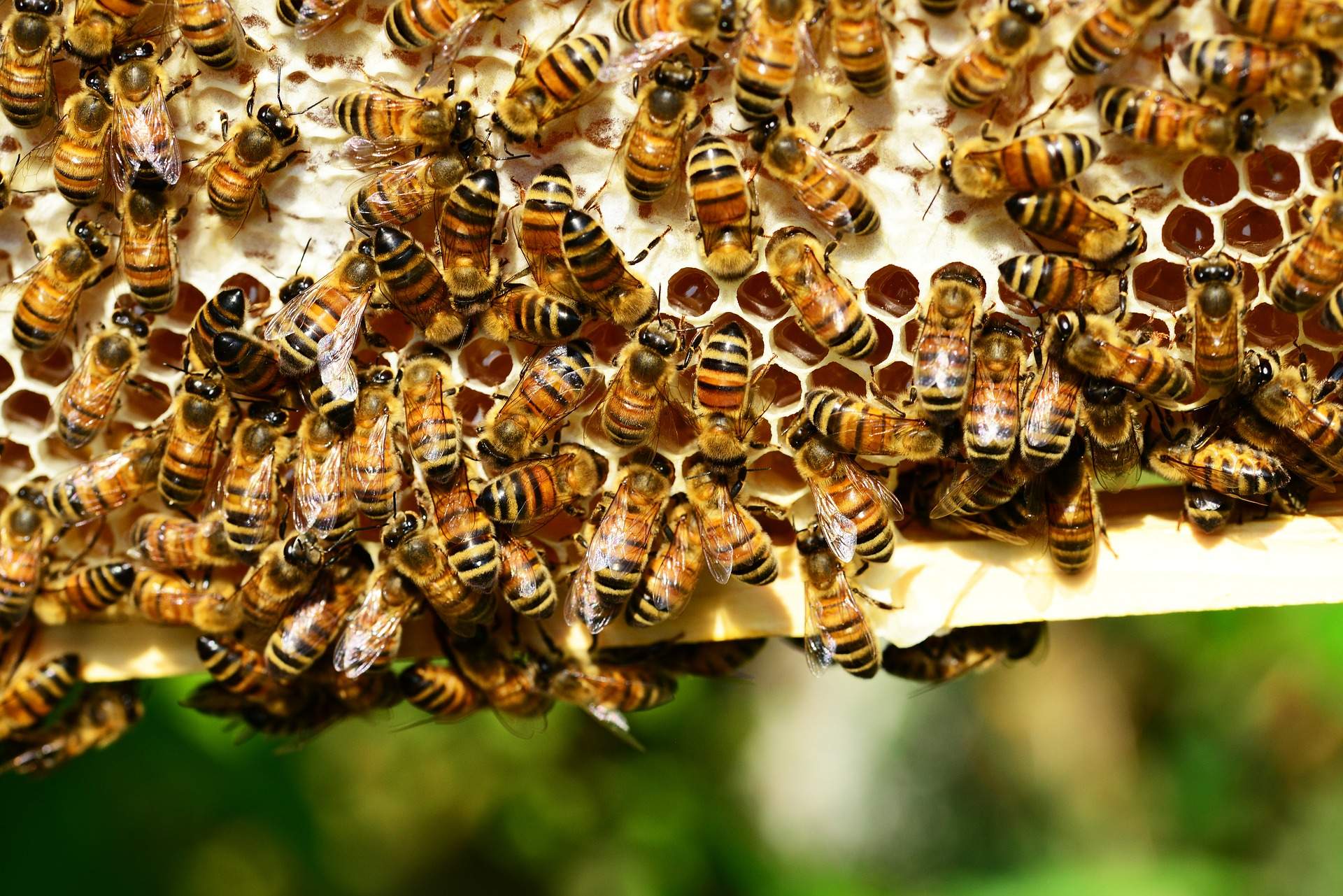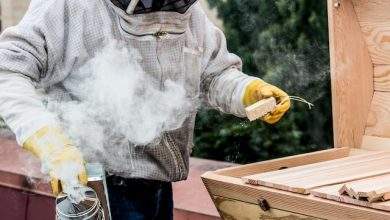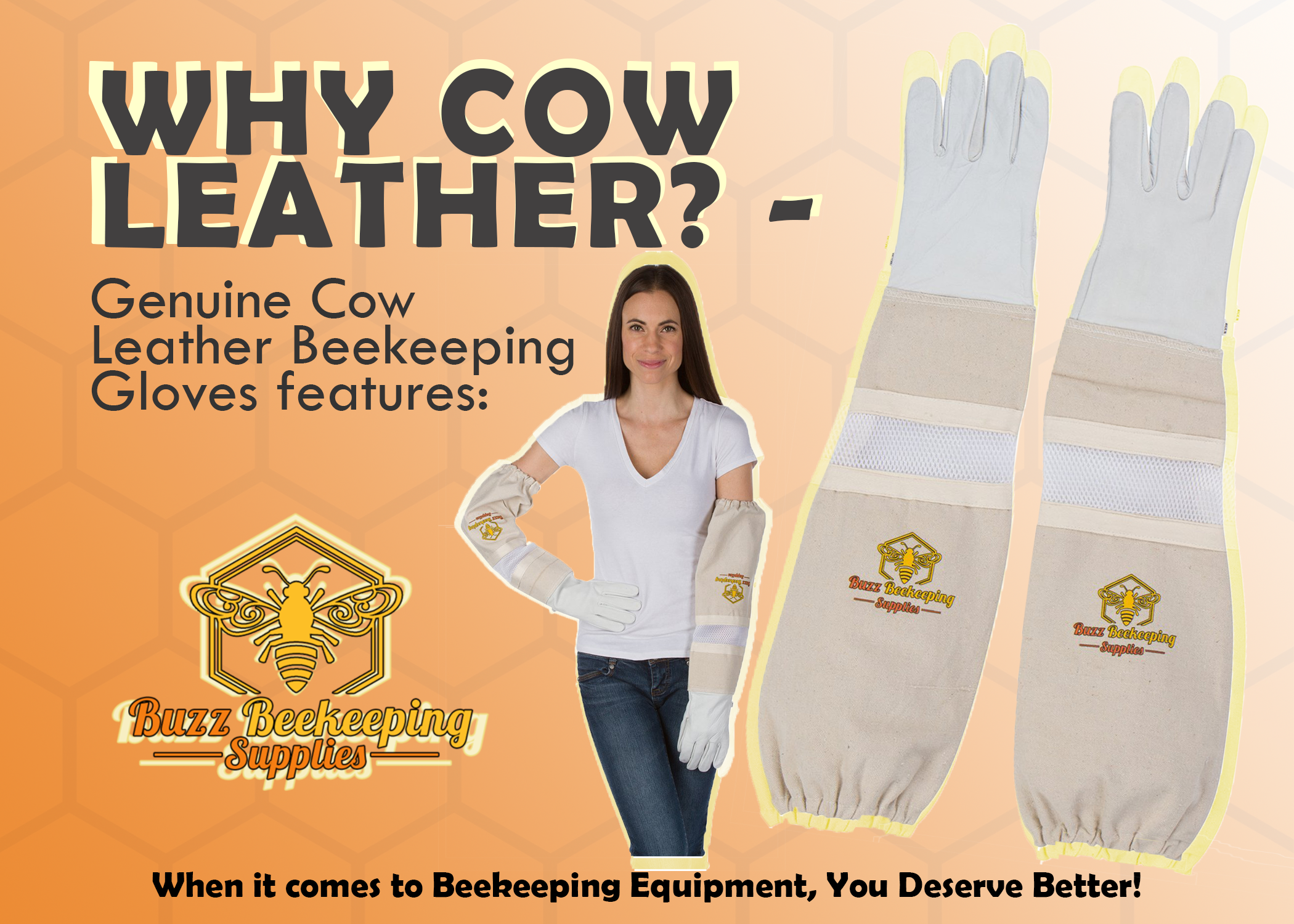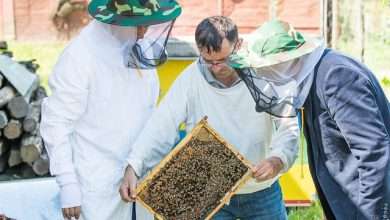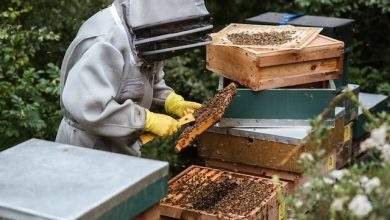Beekeeping Supplies Washington
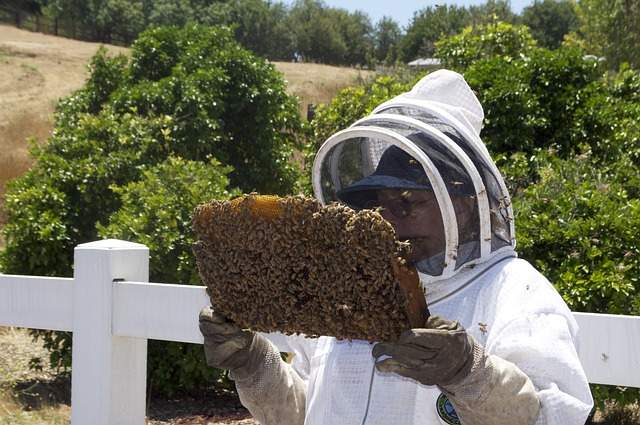
Beekeeping has been practiced in Washington State for more than 150 years. The first European honeybees were introduced to the state in the mid-1800s, and since then, beekeeping has played a significant role in the state’s economy and agriculture.
Today, there are over 7,000 beekeepers in Washington State, and the industry contributes around $80 million to the state’s economy.
Beekeepers in Washington State manage around 60,000 honeybee colonies, which produce around 2.5 million pounds of honey each year.
Beekeeper Supplies in Washington
Beekeeping is an exciting and rewarding activity that requires a lot of knowledge and dedication. Many factors come into play when it comes to successful beekeeping, with the right beekeeping supplies being at the forefront.
Using the right beekeeping supplies can help ensure and maintain healthy and productive bee colonies. So, let’s take a closer look at how beekeeping supplies play a vital role in successful beekeeping.
No matter where you are looking for beekeeping supplies in Washington , we’ve got you covered.
Typical beekeeper supplies needed in Washington includes:
Beekeeping Woodenware
The most popular bee hive in the US is the 10-frame Langstroth hive, originally patented in 1852. This hive, for over 170 years, has been the industry standard.
Hive components are the most important supplies you will need as a beekeeper. These components include hives, frames, and foundations. A beekeeper’s choice of hive can vary, but the most commonly used hive in Washington is the Langstroth hive. Frames and foundations come in different sizes and are the essential elements of honeycomb production. Hive components should be constructed from materials that will withstand the weather and environment.
The hive components include:
- Hive body
- Bottom board
- Honey super
- Frames
- Inner cover
- Hive cover
Beekeeper Protective Clothing
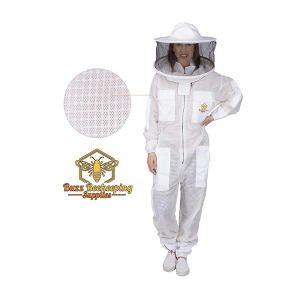
The most common protective gear for beekeepers include:
Beekeeping Suits
One of the most important pieces of beekeeping supplies is your bee suit. Unlike in other states, at the current time, beekeeping hobbyists in Michigan must use the safety of a bee suit or the frames cannot be inspected by the Michigan Department of Agriculture and Rural Development. You’ll need to make sure to select a suit that fits properly to avoid having any parts of your skin exposed to the angry stings.
Both canvas beekeeping suits and ventilated bee suits are available.
Beekeeping Jackets
Canvas bee jackets and ventilated bee jackets are available.
Beekeeping Gloves
Goatskin bee gloves and cowhide bee gloves are available.
Many times, you can purchase a combo pack of a bee suit and bee gloves at a discount.
Please note: Your beekeeping suit or beekeeping jacket should come with a veil included.
Beekeeping Equipment and Tools
Here is a list of some common beekeeping tools:
- Hive tool
- Hive smoker
- Queen marker
- Bee Brush
- Hive feeder
- Entrance reducer
State Association
The state association is Washington State Beekeepers Association. Founded in 1888, the WASBA works to promote apiculture in the state and provide helpful resources to beekeepers. They offer a range of classes on different aspects of beekeeping and hosts an annual beekeepers conference, the WASBA Pacific Northwest Beekeeping Conference.
Where to buy bees and Nucs in Washington?
One of the best places to purchase queen bees, packaged bees and nucleus hives (nucs) is your local bee club.
Washington beekeeping clubs offer a great way to network with other local beekeepers, learn techniques and best practices, and build a sustainable beekeeping enterprise. All it takes is a little research and enthusiasm to find an association that meets your needs, and you’ll be up and running in no time.
Here is a list of local bee clubs in Washington:
- Mt. Baker Beekeepers
Mt. Baker Beekeepers is a bee club located in Whatcom County, Washington. The club meets on the second Wednesday of every month, and members come from all over the county. The club aims to promote beekeeping in the community, disseminate educational resources, and foster the local beekeeping community. Membership is open to individuals of all experience levels.
- Northwest District
The Northwest District of Washington State Beekeepers Association (WSBA) is a network of local beekeeping clubs located throughout the northwestern region of the state. The Northwest District meets quarterly, and each meeting features educational presentations, workshops, and opportunities for beekeepers to connect with each other.
- Puget Sound Beekeepers Association
The Puget Sound Beekeepers Association is one of the most prominent beekeeping organizations in Washington state, with over 700 members. They offer a range of services, including monthly meetings with educational speakers and hands-on workshops, as well as the opportunity to participate in the annual honey show. Additionally, they maintain a list of beekeeping resources and professionals, as well as a mentorship program where you can connect with experienced beekeepers.
- SnoKing Beekeepers Association
The SnoKing Beekeepers Association is a club that supports beekeepers in the Snohomish and King County areas of Washington. The club was founded in 1947 and is one of the oldest beekeeping clubs in the state. The club meets monthly and offers educational resources, a mentor program, and a welcoming community of beekeepers of all skill levels.
- West Sound Beekeepers Association
The West Sound Beekeepers Association serves beekeepers in Kitsap County and the surrounding areas. Their meetings cover a range of topics, from hive health to honey extraction. They also organize extracurricular activities such as field trips and outreach events. The West Sound Beekeepers Association welcomes people of all skill levels, from beginners to experienced beekeepers.
- Whidbey Island Beekeepers Association
The Whidbey Island Beekeepers Association is a bee club located on Whidbey Island. The club meets on the second Thursday of every month and provides educational resources, networking opportunities, and hands-on learning experiences for members. The club is open to beekeepers of all levels, from beginners to experts.
- Skagit Valley Beekeepers Association
The Skagit Valley Beekeepers Association is a non-profit organization that aims to promote and support beekeeping in Skagit County, encouraging both novice and experienced beekeepers. They offer beginner-friendly meetings and workshops, experienced speakers and an annual honey show competition.
- Spokane County Beekeepers Association
The Spokane County Beekeepers Association is dedicated to educating the public on the importance of bees in our ecosystem. They offer monthly meetings with informative speakers, hands-on workshops, and educational outreach events. They also offer a mentorship program for members.
- Olympic Peninsula Beekeepers Association
The Olympic Peninsula Beekeepers Association is a group of enthusiastic hobbyists and professionals who share their love and experience of beekeeping on the Olympic Peninsula of Washington State. They offer educational meetings, outreach work, and community beekeeping resources.
- Central Washington Beekeepers Association
The Central Washington Beekeepers Association serves beekeepers in Central Washington State, and welcomes everyone from beginners, hobbyists, to commercial beekeepers. They provide monthly meetings and workshops, an annual honey show, and the opportunity for members to connect with experienced beekeepers.
Why Join a Local Bee Club?
Joining a local bee club provides many benefits for beekeepers. For starters, it offers a chance to meet other beekeepers and make connections within the community. Not only does this provide a social outlet, but it also provides a wealth of information and resources that may be difficult to find otherwise.
Local bee clubs also often have mentorship programs, which offer more experienced beekeepers an opportunity to share their knowledge and help newer beekeepers learn the ropes. This can be incredibly valuable to beginners who are still learning the ins and outs of beekeeping.
In addition, local bee clubs often host workshops and classes that can help beekeepers stay up-to-date on the latest research and best practices for raising healthy bees. This educational component is crucial for maintaining healthy hives and successful beekeeping practices.
Beekeeping Regulation in Washington
In Washington, beekeepers are required to register their hives with the Washington State Department of Agriculture (WSDA). This is important for tracking disease outbreaks and for the control of honey bee pests.
Beekeepers in Washington are also subject to inspections by the WSDA. These inspections are designed to monitor bee health and ensure compliance with regulations. Inspectors check for signs of diseases and pests and may take samples for testing.
In Washington State, Beekeeping is a highly regulated industry. By following the rules and guidelines, beekeepers can ensure the health and safety of their bees and contribute to the growth and success of the beekeeping industry in Washington.
Selling Honey in Washington
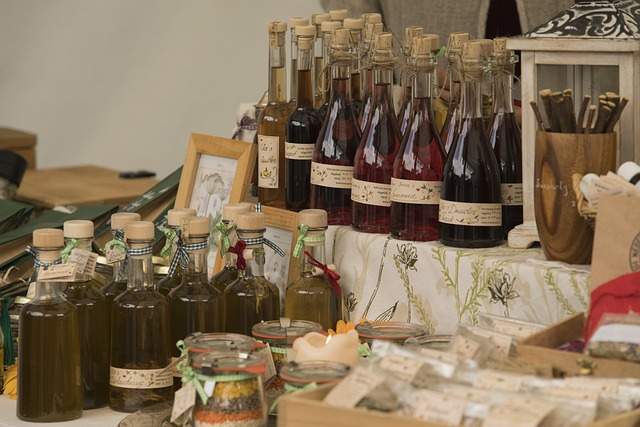
Selling honey in Washington State requires honey vendors to adhere to particular regulations and standards, ensuring that high-quality honey reaches the consumers.
Honey vendors must register with the Washington State Department of Agriculture, abide by labeling requirements, comply with the regulations concerning pre-harvest treatments and pesticides, extract honey in dedicated rooms, and maintain high hygiene standards.
These measures will not only ensure compliance with state standards but also help honey vendors maintain quality, promote their businesses and earn a competitive edge in the market.
Conclusion
As you can see, getting started with beekeeping requires a range of beekeeping supplies which can vary from beginner needs to more advanced needs.
Before getting started in beekeeping, Washington beekeepers will need to take stock of what beekeeping supplies they need and plan accordingly.
Whether you’re just starting out or you’re looking to expand your beekeeping experience, having the right supplies is essential to keeping your bees healthy and productive. So, get started today and experience the many rewards of beekeeping!
Frequently Asked Questions
What should I look for in a beekeeping supplier?
- When you are looking for the best beekeeping supplies in Washington, it is important to keep a few things in mind. First of all, you want to make sure that the beekeeping supplies you purchase are of the highest quality.
- It is also important to make sure that you are buying supplies from a reputable beekeeping supplier. Lastly, you should consider the price of the beekeeping supplies, as well as the return policy of the beekeeping supplier.
Do I need any permits or licenses to keep bees in Washington?
- Aside from registering your colonies, there may be other permits or licenses required depending on where you live in Washington State. For example, some cities and counties may have regulations about where you can keep bees and how many colonies you can have on your property.
How long will my beekeeping supplies last?
- The lifespan of beekeeping supplies depends on how well they’re maintained and how frequently they’re used. Our quality supplies are built to last and will provide you with years of use with proper care.
